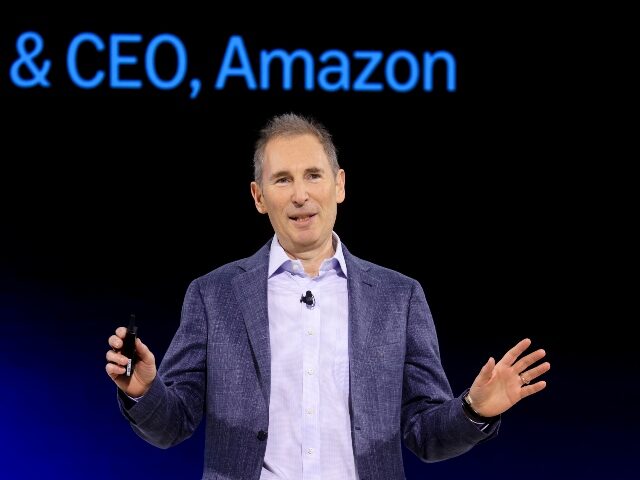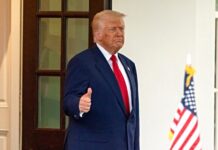Amazon’s CEO Andy Jassy has revealed that the company has not seen significant changes in average selling prices or consumer spending habits based on Donald Trump’s tariff policy. His statements at Amazon’s annual shareholder meeting serves as another nail in the coffin for warnings of economic doom spouted by hysterical Trump haters.
TechSpot reports that in a recent Q&A session at Amazon’s annual shareholder meeting, CEO Andy Jassy addressed growing concerns over how the Trump administration’s tariffs on Chinese imports could affect the e-commerce giant’s business. Jassy stated that, in contrast to warnings from retailers like Walmart and Target about imminent price hikes, Amazon has neither experienced notable increases in average selling prices nor observed any decline in consumer demand.
“We have not seen any attenuation of demand at this point,” Jassy reported to shareholders. “We also haven’t yet seen any meaningful average selling price increases.”
The CEO acknowledged that while some individual sellers on the platform, particularly Chinese companies, have raised prices in direct response to the tariffs, others have chosen to maintain their current pricing. However, Jassy emphasized that these changes have balanced out, resulting in stable overall average prices and consistent consumer spending.
Amazon’s confirmation that prices have not increased and demand has not fallen is further evidence that Breitbart News economic editor John Carney that “tarrifflation” has not happened.
Carney previously wrote in the Breitbart Business Digest:
If the tarifflation alarmists were right, we should have seen the proof by now.
April’s inflation reports were supposed to show the U.S. consumers were bearing the burden of President Trump’s new tariffs. The ten percent universal duty on imports and targeted higher rates on dozens of countries took effect April 2. That gave a full month for cost pressures to show up.
They didn’t.
Wall Street analysts thought the consumer price index would rise 0.3 percent but it edged up 0.2 percent. That’s after prices fell in March and rose just 0.2 percent in February. On a three-month, annualized basis, inflation is running at 1.2 percent.
The producer price index (PPI) for final demand was expected to rise 0.2 percent. Instead, on Tuesday the Department of Labor said PPI fell 0.5 percent in April, the sharpest monthly decline since the early pandemic period. Core PPI (excluding food, energy, and trade services) edged down 0.1 percent—the first monthly decline in five years. Final demand goods prices were flat. Energy prices dipped. Food prices fell.
If tariffs were triggering a new inflationary wave, someone forgot to tell the businesses setting prices for goods and the consumers buying them.
Jassy’s statements come amidst escalating trade tensions between the U.S. and China. The Trump administration has imposed a 30 percent tariff on a wide range of Chinese goods, with some exemptions, and had threatened to raise tariffs to 145 percent before agreeing to a temporary pause until August 12. Major retailers like Walmart and Target have warned that consumers could start seeing higher prices on affected products as early as this month, with Walmart being told by President Trump to “eat the tariffs.” Home Depot, however, has said it expects pricing levels to remain unchanged.
Amazon itself recently found itself at odds with the White House over a plan to list import charges for certain products sold on its Amazon Haul spinoff site, which focuses on items priced under $20, many of which are sourced from China. The move, sparked by the end of the $800 de minimis exemption that allowed consumers to receive foreign packages valued under that amount without paying duties, was criticized by Press Secretary Karoline Leavitt as a “hostile and political act.”
The situation even prompted President Trump to reach out directly to Amazon founder Jeff Bezos, who, according to the president, “solved the problem very quickly.”
Despite these challenges, Jassy’s report suggests that Amazon has thus far been able to navigate the complex landscape of international trade disputes without significant disruption to its business model or customer base. The company’s vast network of sellers and suppliers, coupled with its dominant position in the e-commerce market, may provide a degree of flexibility and resilience in the face of shifting economic conditions.
Read more at TechSpot here.
Lucas Nolan is a reporter for Breitbart News covering issues of free speech and online censorship.




